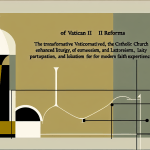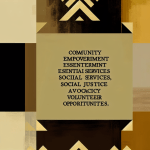Catholicism and Interfaith Dialogue: Building Bridges Across Beliefs
In our increasingly interconnected world, the importance of dialogue and understanding among different faith traditions cannot be overstated. Catholicism and interfaith dialogue have become especially crucial as global issues challenge us to look beyond our individual beliefs and work towards common goals. This post explores the role of Catholicism in interfaith dialogue, the significance of such conversations, and how they contribute to peace and mutual understanding among diverse religious communities.
Understanding Interfaith Dialogue
Interfaith dialogue refers to the open and respectful exchange of ideas and beliefs between individuals from different religious traditions. This process seeks to foster an atmosphere of mutual respect, understanding, and cooperation, creating a space for members of various faiths to engage with one another meaningfully.
The Roots of Interfaith Dialogue
The roots of interfaith dialogue can be traced back to the need for societies to coexist peacefully. As globalization intensifies and communities grow more diverse, the potential for misunderstanding and conflict increases. Interfaith dialogue aims to address these challenges by emphasizing common values and shared moral frameworks.
The Catholic Church’s Approach to Interfaith Dialogue
Catholicism, one of the largest religious traditions in the world, has a rich history of engaging in interfaith dialogue. This engagement is rooted in the Church’s understanding of its mission – to promote peace, justice, and unity among all people, regardless of their faith.
Key Principles of Catholic Interfaith Dialogue
-
Respect for Other Faiths: The Catholic Church recognizes the inherent dignity of every human being, which extends to individuals of other faiths. This respect forms the foundation of meaningful dialogue. The Church emphasizes that understanding other beliefs does not mean diluting one’s own faith.
-
Common Human Values: Catholicism teaches that all people, regardless of religious affiliation, share common values such as love, compassion, and a quest for truth. By focusing on these universal principles, Catholics can engage constructively with individuals from other faith traditions.
-
Theological Engagement: Interfaith dialogue is not merely a social exercise; it also involves theological discussions that allow participants to express and explain their faith in depth. This sharing of beliefs can lead to a greater understanding and appreciation of theological differences and similarities.
The Document of the Second Vatican Council
A significant milestone in Catholic interfaith dialogue came with the Second Vatican Council (1962-1965), particularly the document Nostra Aetate (“In Our Time”). This pivotal text acknowledges the importance of engaging with other religions, affirming that the Church sees positive elements in them and encourages dialogue and collaboration.
The Role of the Pontifical Council for Interreligious Dialogue
The Pontifical Council for Interreligious Dialogue plays a vital role in promoting interfaith conversations within the Catholic Church. Established by Pope Paul VI, this body works towards fostering relationships between Catholics and followers of other religions. Its initiatives often focus on education, collaboration on common social issues, and promoting friendship among diverse faith communities.
The Importance of Interfaith Dialogue in Today’s World
Fostering Peace and Reducing Conflict
One of the most compelling reasons for interfaith dialogue is its potential for fostering peace and reducing conflict. Religious tensions are often at the heart of global conflicts, and open dialogue can help dispel myths and misunderstandings. By creating a platform for honest conversation, Catholicism and interfaith dialogue can work towards reconciliation and peace.
Addressing Social Issues Together
As global crises, such as climate change and poverty, loom large, it becomes essential for different faith communities to unite in their efforts. Interfaith dialogue allows participants to collaborate on social justice initiatives, providing a unified front to tackle pressing global challenges.
Building Community and Respect
Interfaith dialogue not only enhances understanding among different religions but also builds community. Through shared experiences, such as interfaith events, prayers, or discussions, individuals find common ground that can lead to lasting relationships founded on respect and understanding.
Practical Ways to Engage in Interfaith Dialogue as Catholics
Engaging in interfaith dialogue does not require being an expert; anyone can participate in meaningful conversations. Here are several practical steps Catholics can take to foster and engage in interfaith dialogue:
1. Attend Interfaith Events
Many communities host interfaith discussions, workshops, or celebrations. Attending these events is a great way to meet individuals from other faiths and learn about their beliefs and practices. These interactions provide an opportunity to share one’s own Catholic faith respectfully.
2. Engage in Local Community Outreach
Participating in local service projects that bring together people from various religious backgrounds can foster understanding and cooperation. Working side by side on common goals enhances community ties and encourages shared values.
3. Join Interfaith Dialogue Groups
Many organizations focus specifically on interfaith dialogue and education. Joining such groups can provide resources, training, and support to engage effectively and knowledgeably in interfaith conversations.
4. Educate Yourself and Others
Understanding other religions requires effort; therefore, Catholics should seek to educate themselves about various faith traditions. This can often involve reading literature, attending workshops, or taking courses on theology and interfaith relations.
5. Promote Open Communication
Encourage conversations about faith within your community. Creating a safe environment for dialogue can make it comfortable for others to share their beliefs and questions. This openness can lead to fruitful discussions and deeper understanding.
Challenges in Interfaith Dialogue
While interfaith dialogue offers many benefits, it also comes with challenges. Misunderstandings, stereotypes, and preconceived notions can hinder meaningful conversations. Additionally, deeply held beliefs may lead to defensiveness or conflict if not approached delicately. Acknowledging these challenges is critical for successful interfaith engagements.
Conclusion
Catholicism and interfaith dialogue represent a profound opportunity to build bridges among diverse faith traditions in a world that often emphasizes division. By engaging respectfully with one another, we can foster understanding, promote peace, and tackle common social issues collaboratively. The teachings of the Catholic Church provide a robust foundation for these conversations, encouraging Catholics to embrace interfaith dialogue as an essential aspect of their faith practice.
As we move forward, let us remember that every dialogue regarding faith is not only a chance to express and articulate our beliefs but also an opportunity to learn, grow, and ultimately unify in our shared humanity. Embracing this dialogue is essential for personal growth and the broader goal of a more harmonious world.




